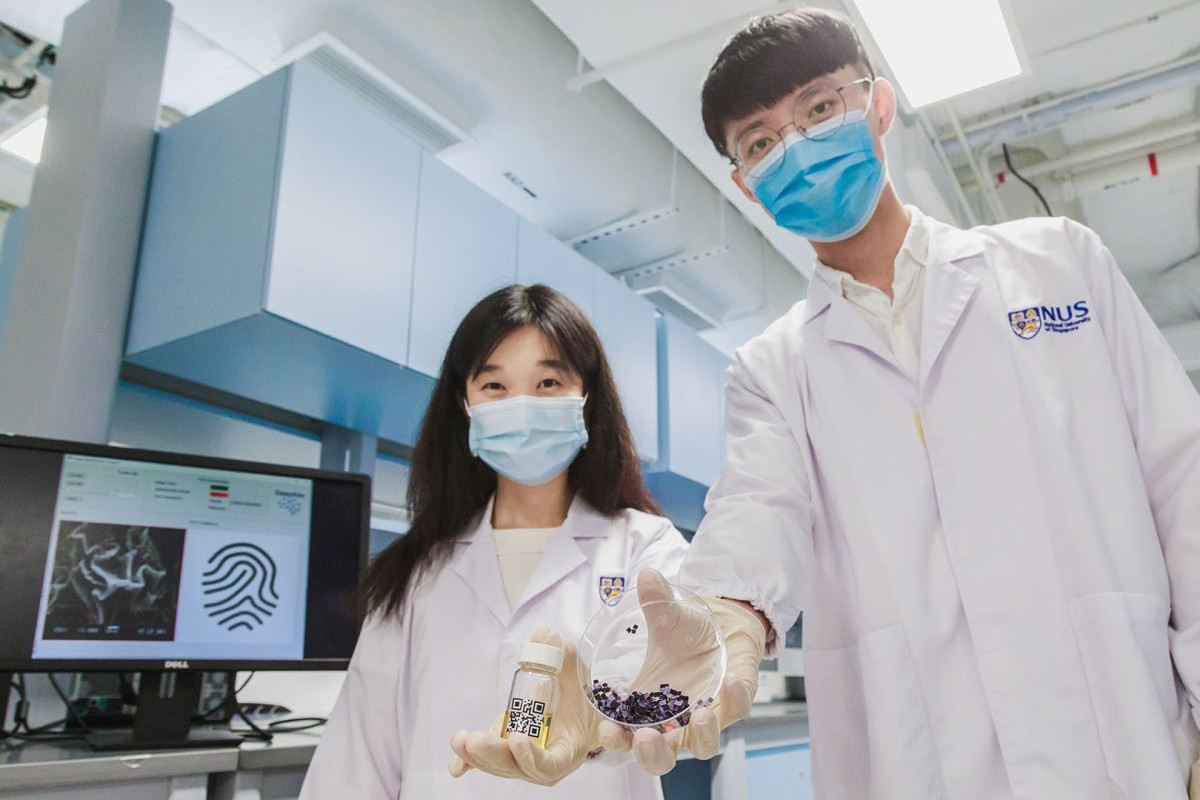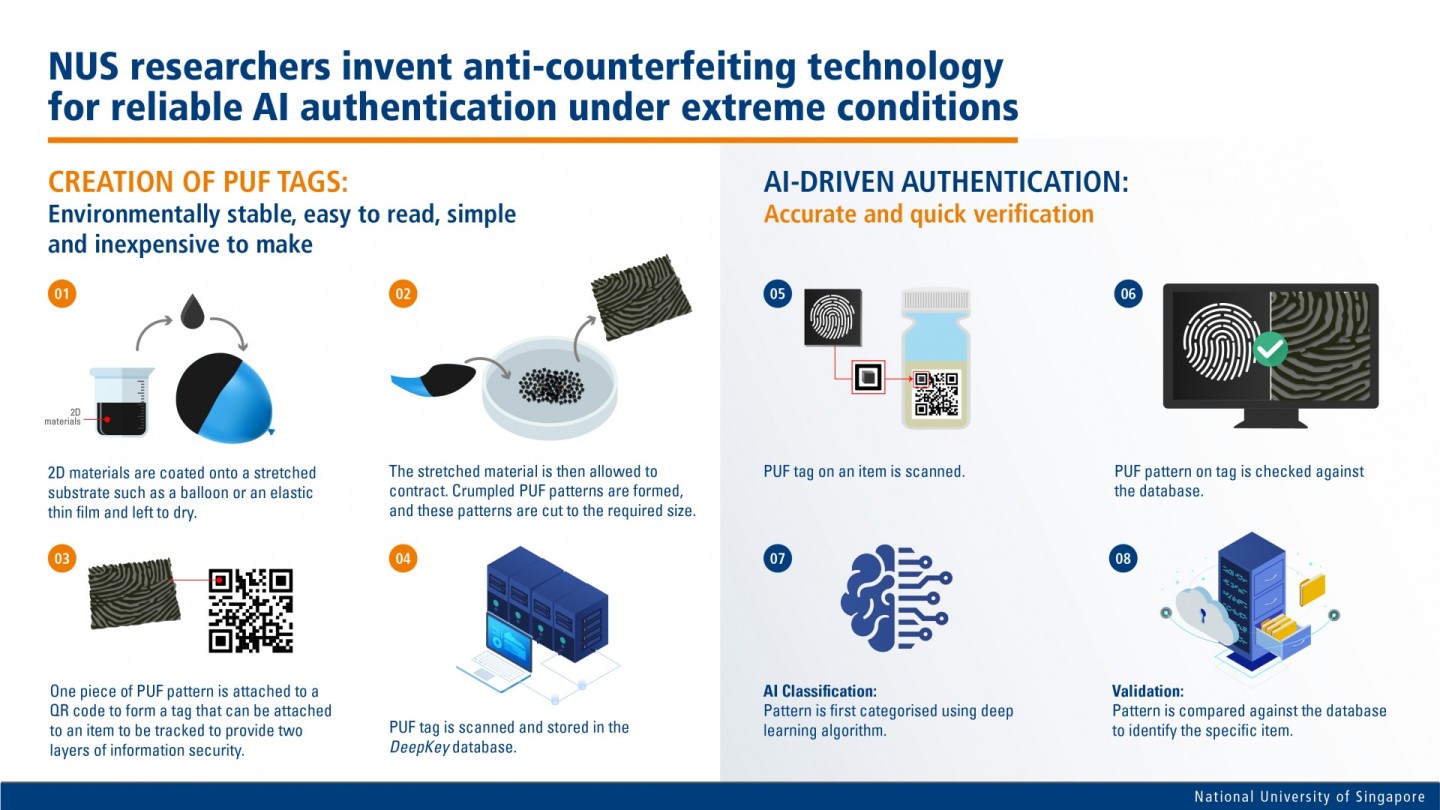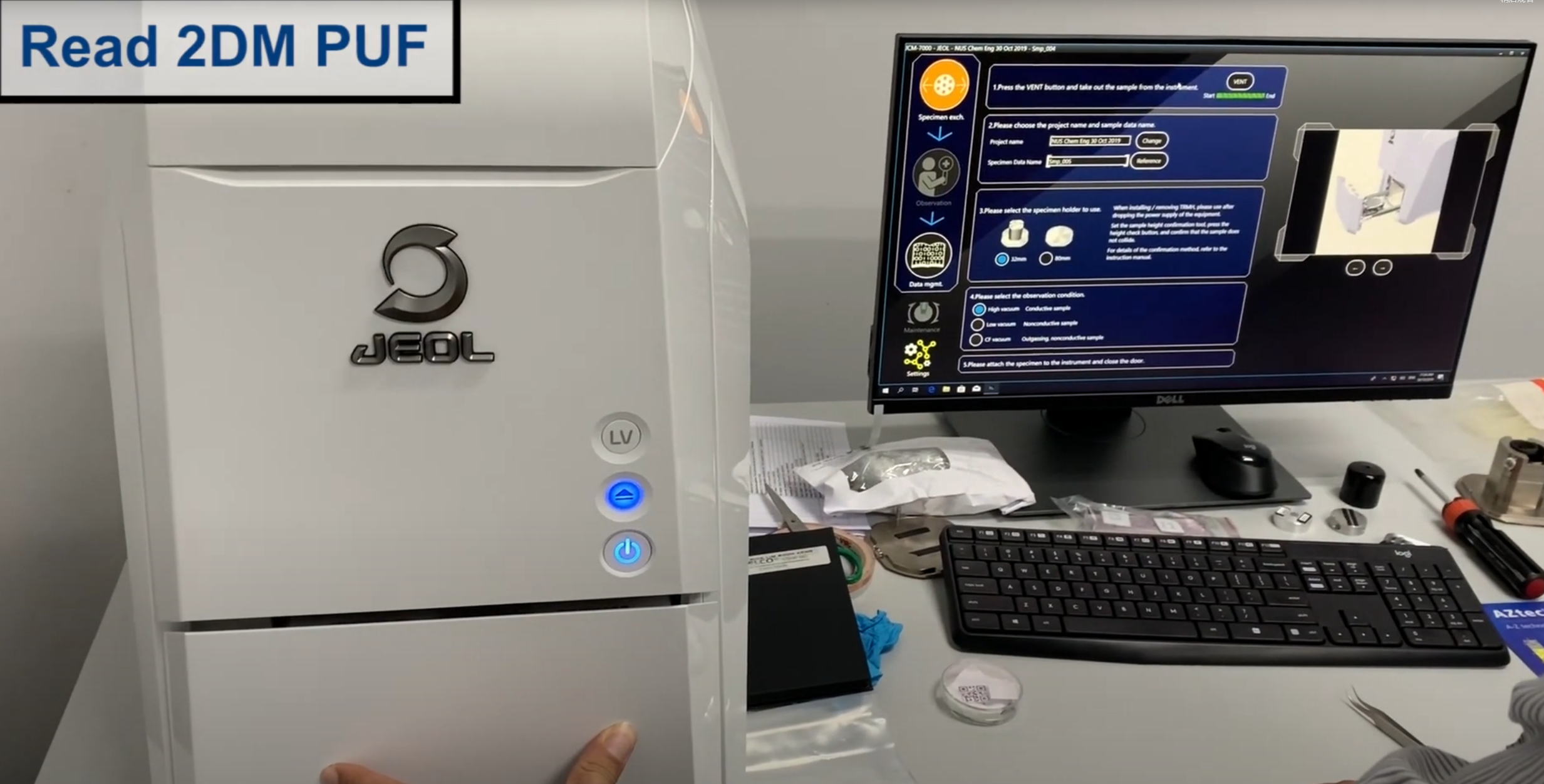 News & Resources
News & Resources
Researchers from the National University of Singapore (NUS) have invented a new method of anti-counterfeiting called DeepKey. Developed in just eight months, this security innovation uses two dimensional (2D)-material tags and artificial intelligence (AI)-enabled authentication software.Novel DeepKey technology uses identification tags that are durable, simple to produce and easy to authenticate with AI algorithm; Suitable for securing medical products, e.g., COVID-19 vaccines, and other high-value items stored under extreme conditions.

Researchers Wang Xiaonan (left) and Dr Jing Lin have developed a new anti-counterfeiting technology based on Physically Unclonable Function patterns
Compared to conventional anti-counterfeiting technologies, DeepKey works faster, achieves highly accurate results, and uses durable identification tags that are not easily damaged by environmental conditions such as extreme temperatures, chemical spills, UV exposure, and moisture. This new authentication technology can be applied to different high-value products, ranging from drugs, jewellery, and electronics. For example, DeepKey is suitable for tagging COVID-19 vaccines to enable rapid and reliable authentication, as some of such vaccines need to be stored at the ultra-cold temperature of -70°C.
Led by Asst Prof Chen Po-Yen and Asst Prof Wang Xiaonan from the Department of Chemical and Biomolecular Engineering at NUS Faculty of Engineering, the team’s 2D-material secure tags exhibit Physically Unclonable Function patterns (PUF patterns), which are randomly generated by systematically crumpling the 2D-material thin films. The complex 2D-material patterns with multi-scale features can then be classified and validated by a well-trained deep learning model, enabling reliable (100 per cent accurate) authentication in less than 3.5 minutes.

Diagram depicting the fabrication process for the DeepKey technology
Remarkably, the researchers do not need any special equipment to create the secure tags. They can simply be made with a balloon, a bottle of 2D-material dispersion, and a brush.
“First, we inflate the balloon and brush over its surface with viscous 2D-material ink. After air-drying overnight, we deflate the balloon. Because of the interfacial mechanical mismatch between the 2D-material and latex substrate, large-area, crumpled PUF patterns are generated during the contraction. These PUF patterns can be cut to the required size afterwards, and normally, hundreds of them can be made at one time,” said Dr Jing Lin, a member of the research team.
Next, the researchers take a quick image of the PUF tag with an electron microscope, which is then synced to their innovative software to go through the deep learning “classification and validation” process. “The whole process takes less than 3.5 minutes, most of which is spent waiting for the readout from the electron microscope. The authentication itself is very fast, in less than 20 seconds,” explained Dr Jing.

In addition to this faster authentication time, the team says its DeepKey tech is more durable and not so easily damaged by things like extreme temperatures, UV exposure and moisture. They note its potential for authenticating vaccines, some of which need to be stored at very cold temperatures.